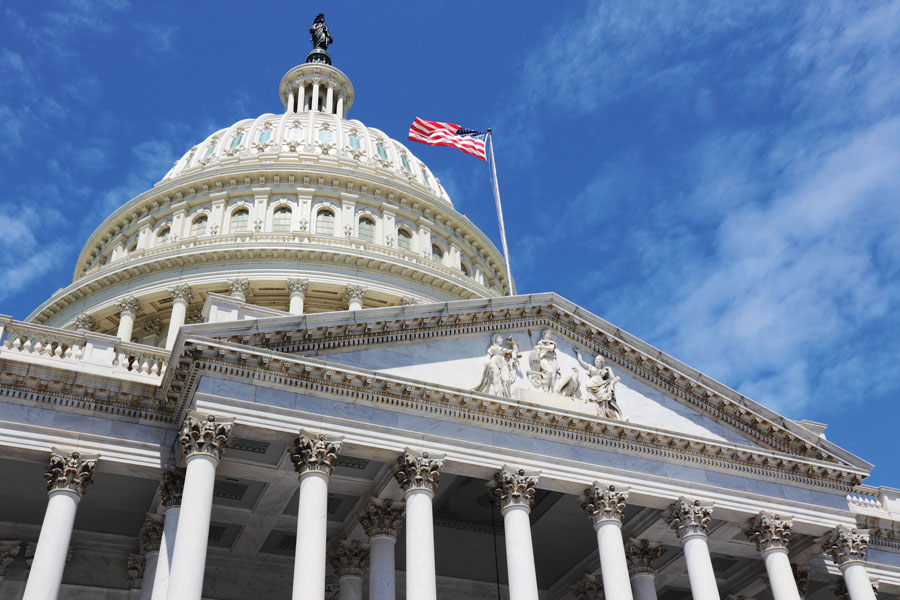

Lawmakers removed from a defense bill a provision that would have required investment advisers to establish anti-money laundering programs.
The House is scheduled to vote later this week on the National Defense Authorization Act, a massive bill that sets military policy and sets the framework for Pentagon spending. The 4,408-page measure was released Tuesday night after congressional negotiators settled on a final bill.
Separate versions had been approved earlier this year by the House and Senate. The latest iteration is likely to be adopted in the lame-duck session of Congress and sent to President Biden to be signed into law.
One of the few pieces of legislation that annually overcomes partisan gridlock, the bill often attracts many non-defense provisions. One of the riders added to the measure as it moved through Congress was the AML legislation, the Establishing New Authorities for Business Laundering and Enabling Risks to Security Act.
Under the provision, advisers would have to establish anti-money laundering and due diligence programs, report suspicious transactions, and identify and verify account holders. It was opposed by the Investment Adviser Association, which applauded its demise.
“The Investment Adviser Association is very pleased that the ENABLERS Act provisions that were added by the House and would have imposed AML regulation on investment advisers have been dropped from the National Defense Authorization Act (NDAA),” Neil Simon, IAA vice president for government affairs, said in a statement early Wednesday morning. “We believe that policymakers should refrain from imposing overbroad AML regulation on advisers whose business models or activities do not raise money laundering risks and actively advocated on behalf of investment advisers to ensure that these provisions be removed from the NDAA.”
The measure was tucked into the bowels of the NDAA by House Democrats who are concerned about money being hidden by Russian oligarchs during Russia’s war in Ukraine. But it was opposed by House and Senate Republicans on committees with jurisdiction over financial services policy.
The AML provision overlaps with a regulation being developed by the Treasury Department’s Financial Crimes Enforcement Network, Simon said at an IAA conference in September.
In addition to the NDAA, Congress is expected to take up an economic policy package during the lame-duck session that includes major retirement savings legislation known as SECURE 2.0.
Lawmakers are racing against the clock. Any legislation not approved by Congress before the congressional session concludes at the end of the month must be reintroduced in the new Congress next year.

Rajesh Markan earlier this year pleaded guilty to one count of criminal fraud related to his sale of fake investments to 10 clients totaling $2.9 million.

From building trust to steering through emotions and responding to client challenges, new advisors need human skills to shape the future of the advice industry.

"The outcome is correct, but it's disappointing that FINRA had ample opportunity to investigate the merits of clients' allegations in these claims, including the testimony in the three investor arbitrations with hearings," Jeff Erez, a plaintiff's attorney representing a large portion of the Stifel clients, said.

Chair also praised the passage of stablecoin legislation this week.

Maridea Wealth Management's deal in Chicago, Illinois is its first after securing a strategic investment in April.
Orion's Tom Wilson on delivering coordinated, high-touch service in a world where returns alone no longer set you apart.
Barely a decade old, registered index-linked annuities have quickly surged in popularity, thanks to their unique blend of protection and growth potential—an appealing option for investors looking to chart a steadier course through today's choppy market waters, says Myles Lambert, Brighthouse Financial.
